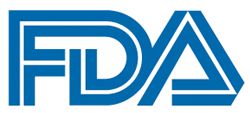MEK Inhibitor Granted Breakthrough Designation for NF1 Plexiform Neurofibromas
The FDA has granted a breakthrough therapy designation to the investigational agent selumetinib for the treatment of pediatric patients ≥3 years old with symptomatic and/or progressive, inoperable neurofibromatosis type 1

The FDA has granted a breakthrough therapy designation to the investigational agent selumetinib (AZD6244) for the treatment of pediatric patients ≥3 years old with symptomatic and/or progressive, inoperable neurofibromatosis type 1 (NF1))related plexiform neurofibromas.1
The designation was granted to the novel MEK1/2 inhibitor, according to an announcement from the co-developers AstraZeneca and Merck, based on the results from the phase II SPRINT trial (NCT01362803). In the SPRINT trial, which was presented at the 2018 ASCO Annual Meeting, selumetinib induced partial responses in 72% of the pediatric patients enrolled in the study.2
“Selumetinib shows promise in the treatment of NF1-related plexiform neurofibromas, a rare and debilitating disease with no approved medications to date. The breakthrough therapy designation acknowledges the significant unmet need of these patients and the potential benefit of selumetinib in this setting,” José Baselga, MD, PhD, the executive vice president of research and development in oncology, AstraZeneca, said in a statement.
The breakthrough therapy designation from the FDA will assist in expediting the development and review of selumetinib in this setting.
Fifty patients with NF1 and inoperable plexiform neurofibromas that was causing morbidity were enrolled in the phase II SPRINT trial. Patients aged 2 to 18 years old were given 25 mg/m2/dose of selumetinib twice daily continuously in 28-day cycles until progression of their disease or intolerable toxicity. The primary endpoint was the complete and partial response rate as measured by volumetric MRI. Secondary endpoints included impact of treatment on pain and quality of life, safety, and pharmacodynamics.
The median age was 10.2 years (range, 3.5-17.4) and 30 of the patients were male. Twenty-one patients had progression of their disease at baseline. Also at baseline, disfigurement was observed in 44 patients, 33 had motor function difficulties, and 28 had pain. Other plexiform neurofibromarelated morbidities included airway issues in 16, vision troubles in 10, bowel/bladder disfunction in 10, and other morbidities in 9 patients.
Best response was a partial response in 36 patients (72%) and an additional 12 patients had stable disease (24%). Two patients were not re-staged. Thirty-two of the partial responses were confirmed upon consecutive re-staging scans after 4 months.
Patients received treatment for a median of 19.5 cycles (range, 0-29) and the most common adverse events observed were gastrointestinal toxicities, creatine phosphokinase increase, rash, and paronychia. Twelve patients required a dose reduction, and 4 of these patients were removed from treatment due to grade 3/4 adverse events that may have been due to treatment.
Improvements were seen in both function and patient-reported outcomes perspectives of pain, motor function, and quality of life.
“This new designation validates our ongoing development of selumetinib. As a result of this, selumetinib has the potential to receive expedited regulatory review and we hope to bring this medicine to patients as soon as possible,” said Roy Baynes, senior vice president and head of global clinical development, chief medical officer, Merck Research Laboratories, in a statement.
Plexiform neurofibromas are tumors on the nerve sheaths and typically cause morbidities such as pain, motor dysfunction, disfigurement, and more. These tumors can potentially transform into malignant peripheral nerve sheath tumors. The development of these tumors is also more common in patients with NF1, a genetic condition resulting from a mutantNF1gene, along with other cancers such as leukemia and malignant brain tumors. NF1 is typically seen in early childhood.
Selumetinib inhibits MEK to prevent tumor growth due to dysregulations in RAS/RAF/MEK/ERK pathway signaling as a result ofNF1mutations.
In February 2018, the FDA granted selumetinib an orphan drug designation for the treatment of NF1, and the European Medicines Agency also granted an orphan designation to the agent in August 2018.
References:
- Selumetinib granted US Breakthrough Therapy Designation in neurofibromatosis type 1 [press release]. AstraZeneca and Merck & Co: Kenilworth, NJ; April 1, 2019. https://bit.ly/2OFNpB1. Accessed April 1, 2019.
- Gross AM, Wolters P, Baldwin A, et al. SPRINT: Phase II study of the MEK 1/2 inhibitor selumetinib (AZD6244, ARRY-142886) in children with neurofibromatosis type 1 (NF1) and inoperable plexiform neurofibromas (PN).J Clin Oncol.2018;36(suppl 15; abstr 10503). doi: 10.1200/JCO.2018.36.15_suppl.10503.